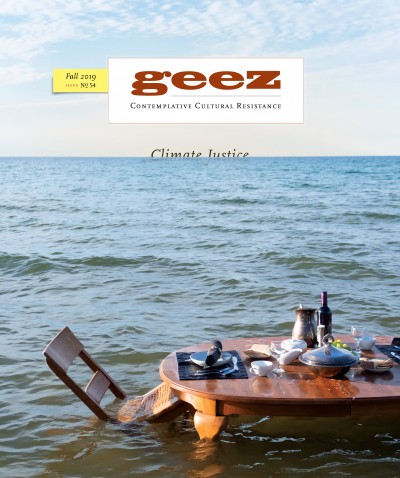Let Me Sing to You Now, About How People Turn into Other Things
The Oversory by Richard Powers on pine needles Credit: Alex Haglund (link below)
Last year, during the enormous, bursting green of Minnesota in July, my partner and I welcomed our first baby into our arms and into the cradle of the Tischer Creek Watershed.
Somewhere within those first months of the strange unveiling upheave of being a mama, I learned to read a book with one hand while balancing a baby sleeping on my chest. We were fortunate to welcome a stream of loved ones into our home in this time, and one of them brought with her The Overstory, a book travelling on the relational lines of beloveds deeply embodying lives of meaning in a time of climate catastrophe (like adrienne maree brown’s Emergent Strategy before it).
Reading in the nursery with the world sleeping on my chest, stones from Lake Superior sometimes holding down my pages, I savoured The Overstory for months. Its wide, wide arch reminded me of God’s speech from the Whirlwind in the book of Job. The scope of this novel is both radically nonanthropocentric and grounded in the absurd hope that individual human lives can shape a story of salvation from our current systematic desecration, if they can be awakened by relationship with trees. The novel is imperfect; I longed for a more robust lens of environmental racism and a resolution less entangled with technology, but it does hold a rare power to awaken ecological interconnective imagination within the biographies of human life.
Roots trace the lives of nine people through the lens of their familial and personal relationship with trees – one of the most devastating and absorbing collections that I have ever read. As the novel progresses, it becomes clear that a force larger than (or maybe precisely the size of) a cluster of redwoods is drawing these folks together, guiding them into messy actions of resistance and renewal. Many times within this expansive story – both alarmingly intimate with and also nonchalant about human suffering, the way a vast ecosystem which relies on death for life must be – I found myself holding the baby tightly, remembering my own childhood connection to a tree, silently gasping out sob after sob.
If you dare to pick up this novel, be ready to have the wind knocked out of you. Be ready to see yourself through the eyes of cottonwood fluff riding on the wind – “that’s the trouble with people, their root problem. Life runs alongside them, unseen. Right here, right next. Creating the soil. Cycling water . . . Feeding and curing and sheltering more kinds of creatures than people know how to count.” Be ready to fill your lungs with mystery and majesty. Be ready to long to strap yourself to a giant conifer older than scripture.
It’s the kind of book that begs to be shared. To be answered. “Sunlight and water are questions endlessly worth answering.” “The only dependable things are humility and looking.” “The best and easiest way to get a forest to return to any plot of cleared land is to do nothing – nothing at all, and do it for less time than you think.”
Sarah Holst is mama to one-year-old baby Sage, a final-year masters of divinity student at United Theological Seminary, and the Practicum Coordinator for EcoFaith Recovery.
Image credit: The Oversory by Richard Powers on pine needles, photo by Alex Haglund CC, flickr.com/ahaglund.



Start the Discussion